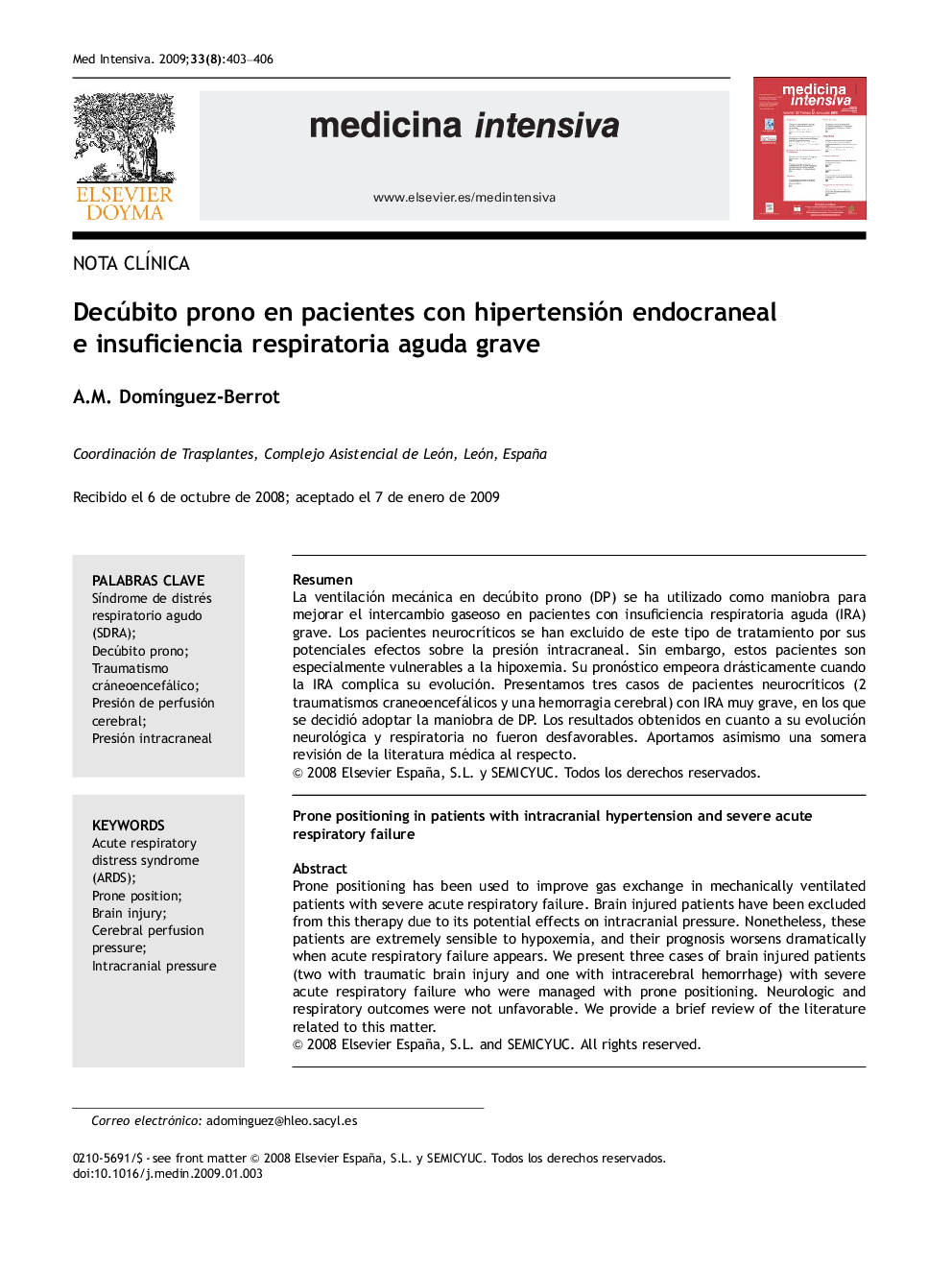| Article ID | Journal | Published Year | Pages | File Type |
|---|---|---|---|---|
| 3113367 | Medicina Intensiva | 2009 | 4 Pages |
ResumenLa ventilación mecánica en decúbito prono (DP) se ha utilizado como maniobra para mejorar el intercambio gaseoso en pacientes con insuficiencia respiratoria aguda (IRA) grave. Los pacientes neurocríticos se han excluido de este tipo de tratamiento por sus potenciales efectos sobre la presión intracraneal. Sin embargo, estos pacientes son especialmente vulnerables a la hipoxemia. Su pronóstico empeora drásticamente cuando la IRA complica su evolución. Presentamos tres casos de pacientes neurocríticos (2 traumatismos craneoencefálicos y una hemorragia cerebral) con IRA muy grave, en los que se decidió adoptar la maniobra de DP. Los resultados obtenidos en cuanto a su evolución neurológica y respiratoria no fueron desfavorables. Aportamos asimismo una somera revisión de la literatura médica al respecto.
Prone positioning has been used to improve gas exchange in mechanically ventilated patients with severe acute respiratory failure. Brain injured patients have been excluded from this therapy due to its potential effects on intracranial pressure. Nonetheless, these patients are extremely sensible to hypoxemia, and their prognosis worsens dramatically when acute respiratory failure appears. We present three cases of brain injured patients (two with traumatic brain injury and one with intracerebral hemorrhage) with severe acute respiratory failure who were managed with prone positioning. Neurologic and respiratory outcomes were not unfavorable. We provide a brief review of the literature related to this matter.
